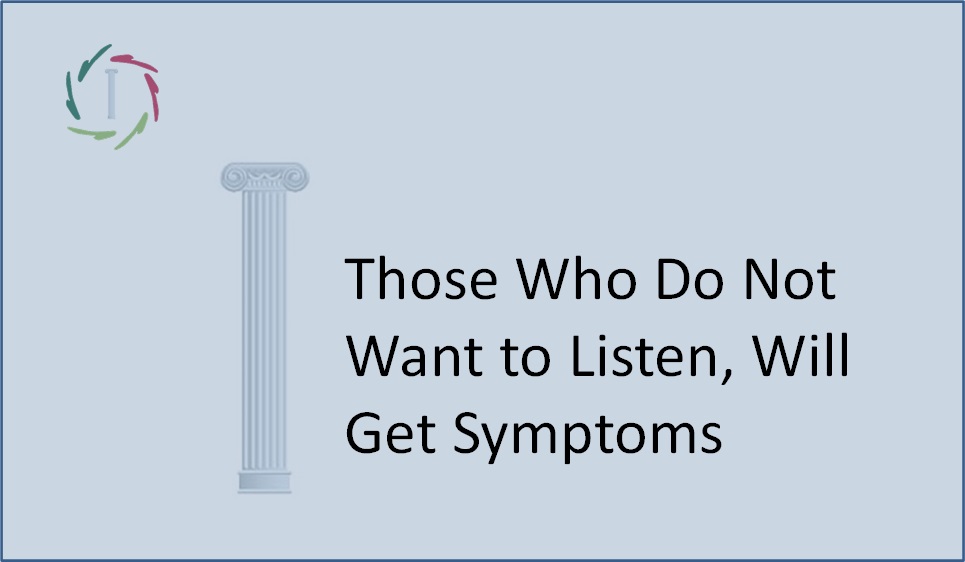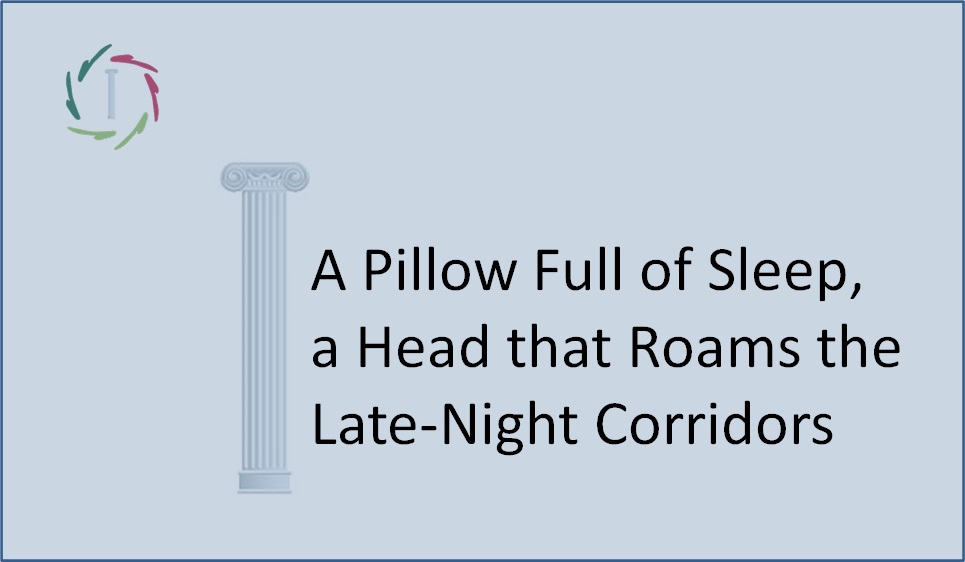47. Those Who Do Not Want to Listen, Will Get Symptoms

Psycho-somatic symptoms are present because something else is not.
The symptom as second best
A person who suffers chronically from the pressure of stressful conditions will eventually develop symptoms (palpitations, dyspepsia…). That person can do something about those conditions. This will relieve stress, which in turn leads to fewer symptoms. He can also work on his stress constancy ― fewer symptoms.
If you look at it that way, you may conclude that a psycho-somatic symptom does indeed come from somewhere. Either it’s just there because something else isn’t there, like a plant that withers because there’s no water or the leaves that fade for lack of light.
You can think of it as a form of communication. Acute pain communicates that you need to take your hand away from a hot plate
Psycho-somatic chronic pain communicates something that is not easy to express in comprehensible language.
It is indeed communication, but not of the conceptual kind. We are not talking about Portuguese that needs a straightforward translation to be understood by a non-native. In many cases, it’s about a deep meaning beyond the conceptual. Then we enter a vague but no less important domain. Indeed not for a chronic pain patient.
Shouting louder and louder?
I think that makes sense: When a symptom’ calls from the inside’ and it is not responded to, the symptom starts to shout louder and louder, in the form of the same symptom or another one. We must, of course, be careful about this. Science in this field is complex! In addition, the difference between taking due account of a symptom or not is often difficult to recognize. It’s a game of attention, deep attention, the manner of attention.
We should not just focus on what is easy to grasp or turn away from it in advance.
An example. Situational stress may cause teeth grinding and jaw joint disorders. By taking only a painkiller, one does nothing to reduce the stress. It can rage on and lead to more problems. The jaw joint becomes more inflamed. Other symptoms may emerge, or existing ones may get worse. How far can this go?
If ‘social stress’ is caused in rats in specific trials, it ultimately increases cancer risk.
We don’t know what this means for humans. So we shouldn’t pretend. The world of meaning of a human being is more complex than that of a rat. Therefore it’s more challenging to study. A stress symptom is somehow always a call from within. Stress is always a perception. No situation is objectively stressful. What is a stressful situation for a mouse is a start to breakfast for the cat. What is negatively stressful for one person is a positive challenge for another.
The symptom whisperer
A psycho-somatic symptom comes by definition from within. One can superficially deal with this in an attempt to ‘cut away’ the symptom. This is a symptomatic treatment.
One can also approach the symptom as a kind of communication. This is, of course, communication in a foreign language ― a symbolic language, as in a poem. It is then necessary to know what is going on. A symbol is not an analogy! A straightforward translation (this symptom has that meaning) is entirely out of the question.
‘Whispering with a symptom’ means valuing the symptom as a symbol.
It is inviting the symptom as such to play its role. Appreciating the painful jaw joint as a symbol means appreciating the total person attached to that jaw joint. All in all, in this respect, dualistic medicine has not always cut the mustard. However, it is about time. ‘Five to twelve’ refers to yesterday’s twelve.


